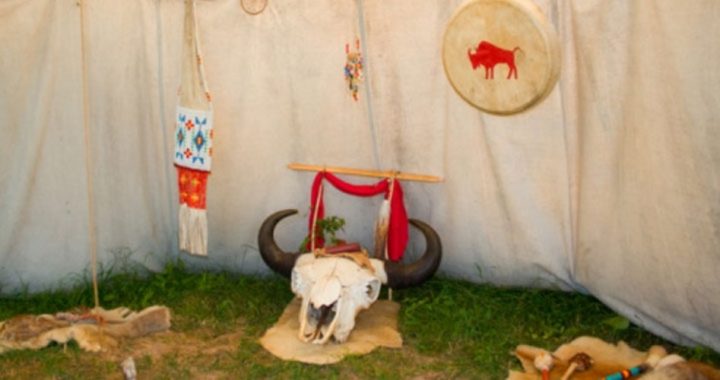
"This will be the first mission to the US by an independent expert designated by the UN human rights council to report on the rights of the indigenous peoples," a statement by the UN read. Anaya describes the intention of the visit on his webpage:
The aim of the Special Rapporteur's visit to the United States is to examine the human rights situation of the indigenous peoples of the country, that is, American Indians/Native Americans, Alaska Natives and Native Hawaiians. During the visit, the Special Rapporteur will hold meetings and consultations with federal and state government officials, as well as with indigenous nations and their representatives, in various locations.
A large majority of the country’s 2.7 million Native Americans reside in federally recognized tribal areas, where incest, alcoholism, high unemployment, and other social issues linger. Although they were granted power over vast areas of land, particularly in the west, U.S. Native Americans have repeatedly become involved in sovereignty and land rights’ disputes with state governments. Most American citizens have few relations with the 500-plus tribal areas in the United States, with the exception of tourists who visit the casinos or enjoy the areas’ beautiful landscapes.
In 2010, the United States signed up on the United Nations Declaration on the Rights of Indigenous Peoples — after opposing the treaty when enacted in 2007 — which establishes a basic criterion of human rights for indigenous people globally. In his 2010 Presidential Proclamation for National Native American Heritage Month, President Obama pledged to support "tribal self-determination, security and prosperity for all Native Americans."
Moreover, the President acknowledged that "[w]hile we cannot erase the scourges of broken promises of our past, we will move ahead together in writing a new, brighter chapter in our joint history." In its official announcement, the State Department release declared:
It is in this spirit that the United States today proudly lends its support to the United Nations Declaration on the Rights of Indigenous Peoples (Declaration). In September 2007, at the United Nations, 143 countries voted in favor of the Declaration. The United States did not. Today, in response to the many calls from Native Americans throughout this country and in order to further U.S. policy on indigenous issues, President Obama announced that the United States has changed its position. The United States supports the Declaration, which — while not legally binding or a statement of current international law — has both moral and political force. It expresses both the aspirations of indigenous peoples around the world and those of States in seeking to improve their relations with indigenous peoples. Most importantly, it expresses aspirations of the United States, aspirations that this country seeks to achieve within the structure of the U.S. Constitution, laws, and international obligations, while also seeking, where appropriate, to improve our laws and policies.
Anaya, a professor of human rights at the University of Arizona, said he "will examine the situation of the American Indian/Native American, Alaska Native and Hawaiian peoples against the background of the United Nations’ endorsement of the UN declaration on the rights of indigenous peoples." He continued, "My visit aims at assessing how the standards of the Declaration are reflected in U.S. law and policy and identifying needed reforms and good practices."
Following his visit, Anaya will present a report before the United Nations Human Rights Council, which will then decide whether "needed reforms" (while not legally binding) should be implemented to meet the Declaration’s requirements. Concerning his findings:
The results of this assessment will be reflected in a preliminary report that will be submitted to the United States for its comments and consideration. A final version of the report will be circulated publicly and presented to the United Nations Human Rights Council. The report will include recommendations to the United States, indigenous governing bodies and, possibly, other interested parties on how to address issues of ongoing concern to indigenous peoples.
The UN initiative arrives as the U.S. government is grappling to wrap up legal wrangles — mostly dealing with land and broken treaties — with Native American tribes throughout the country. Earlier this month, for instance, government officials agreed to a $1-billion settlement with 41 different tribes to resolve lawsuits that are decades old. More than 70 other tribes are still negotiating with the government, but a settlement is expected with them in the near future.
While the notion that tribal leaders would pursue government officials for federal dollars may seem understandable, analysts have warned that the Native American community ought to be careful of accepting such bounties. "What the federal government subsidizes, it controls just as surely as if it were sending in the cavalry," The New American reported in an article a couple of years back. "Native Americans, like any other Americans, will find the greatest degree of liberty when they forget about Uncle Sam’s compliance-inducing bribes."
Insofar as the purported UN investigation, the U.S. government ought to be wary about opening its borders to global governance. While some might assert that a minor investigation into the treatment of a few Native American communities is harmless, it opens a dangerous door — one that further empowers the United Nations and strengthens the foundation of a world government.



